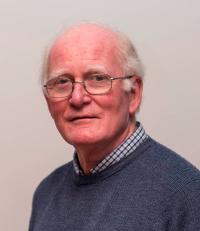Professor Mike Berridge - Distinguished Research Fellow and Group Leader Cancer Cell Biology - Malaghan Institute of Medical Research, Wellington, New Zealand
Dr Mike Berridge completed a doctoral degree in cell biology at the University of Auckland in 1971. Following postdoctoral research in developmental biology at Purdue University he was employed as a staff scientist at the National Institute for Medical Research, Mill Hill, London. He returned to Wellington in 1976 as the second Malaghan Research Fellow and was a founding scientist at the Wellington Cancer and Medical Research Institute, renamed the Malaghan Institute of Medical Research in 1986, where he established a Cancer Cell Biology Programme. He received a James Cook Fellowship in health sciences in 2003 and was awarded the Health Research Council Liley Medal for outstanding research on cellular metabolism in 2016. Dr Berridge’s main research interests include cancer cell energy metabolism, mitochondrial transfer between cells and tumour immunology.
Abstract: The view that genes are constrained within somatic cells is challenged by our recent demonstration that mitochondria move between cells. We have developed 3 tumour models lacking mitochondrial DNA. These ρo cells are respiration-deficient and cannot produce mitochondrial ATP. They are auxotrophic for uridine and will not form tumours until they have acquired mitochondria from adjacent normal cells. With B16ρo melanoma and 4T1ρo breast carcinoma cells, tumour growth is delayed for several weeks. With GL261ρo glioblastoma cells injected intracranially, tumour formation is delayed by several months. Additionally, tumour growth in both 4T1 and B16 models is not dependent on Atp5b, a nuclear gene essential for mitochondrial ATP synthesis but is dependent on Dhodh, which encodes a respiration-dependent enzyme (dihydroorotate dehydrogenase) at the inner mitochondrial membrane required for de novo pyrimidine biosynthesis and anabolic metabolism. Current research is focussed on the role of the mitochondrial genome in controlling expression of nuclear stress and immune response genes, and how these genes orchestrate early tumour development.
If you would like to meet up with Mike, please contact Petr Tomek at p.tomek@auckland.ac.nz





